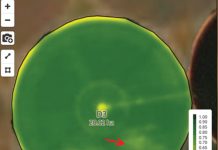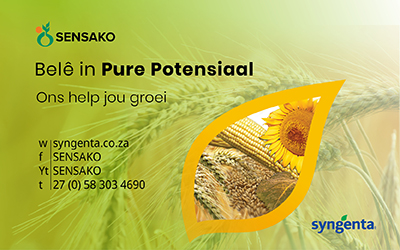
Dr Siphiwokuhle Shandu, ARC-Grain Crops, Potchefstroom

Dr Kingstone Mashingaidze,
ARC-Grain Crops, Potchefstroom

Lebogang Angelo Madubanya, ARC-Grain Crops, Potchefstroom

Lucia Zinzi Ndlala, University of
KwaZulu-Natal, Pietermaritzburg

Willy Ratladi,
ARC-Grain Crops, Potchefstroom

Marriam Sithole,
ARC-Grain Crops, Potchefstroom

Innocentia Gwili,
ARC-Grain Crops, Potchefstroom
Availability of high-quality seed at affordable prices is key to improved maize productivity of smallholder farmers in South Africa. Given the vast role that maize plays in human diets in South Africa, tremendous effort has been made in promoting the adoption of improved seeds by smallholder farmers.
South Africa’s seed industry is more advanced than that of other African countries although it mostly serves the needs of commercial large-scale producers. Small to medium-sized seed businesses that produce and supply smallholder farmers with hybrid seed are major components of the seed value chain. A key issue for seed businesses has been the capacity to effectively produce and distribute high-quality hybrid seed to smallholder farmers at a reduced cost. Irrespectively, research and development programmes continue to focus on supporting the maize seed industry to bring new varieties to farmers. This article explores the potential benefits of the seed production technology for Africa (SPTA) in the maize seed industry in South Africa.
About SPTA
The SPTA is a collaborative initiative of the Agricultural Research Council of South Africa (ARC), International Maize and Wheat Improvement Center (CIMMYT), Corteva AgriscienceTM, Kenya Agricultural and Livestock Research Organisation (KALRO) and QualiBasic Seed (Figure 1). The SPTA aims to improve access to high-purity seed of modern maize hybrids with improved yield in low fertility environments, thus improving the livelihoods of resource-constrained maize farming households in sub-Saharan Africa.
Mechanism description
The seed production technology (SPT) has been designed for African smallholder farmers to improve access to high-quality seed of modern maize varieties and to strengthen the capacity of small to medium enterprise (SME) seed companies to efficiently produce high-quality hybrid maize seed, at reduced cost. The SPT process utilises a dominant male-sterility maize gene, Ms44, to create female parent plants that are non-pollen-producing (Figure 2), and do not need to be detasseled during hybrid seed production. The system utilises a transgenic maintainer line (Ms44 SPT/Ms44-) with restored fertility to increase seed of homozygous dominant (Ms44/Ms44) non-pollen-producing (NPP) inbred lines, without transferring the transgene to the seed produced (Collinson et al., 2022).
This technology is ideal for producing seed of single and three-way cross hybrids without detasseling the female parents. The process makes cross-pollination between the female and male parents more reliable, enabling efficient and cost-effective delivery of high-purity hybrid seed. To produce a three-way cross hybrid, a homozygous dominant (Ms44/Ms44) NPP inbred line is initially crossed with a homozygous recessive (Ms44/Ms44) male-fertile inbred line to produce a heterozygous NPP single-cross female parent, that is then crossed with a second homozygous recessive (Ms44/Ms44) male-fertile inbred line.
The resultant three-way cross hybrid segregates 1:1 for Ms44/Ms44 pollen-producing and Ms44/Ms44 non-pollen-producing (1~pollen-producing-PP: 1~non-pollen producing-NPP) plants (Collinson et al., 2022). The finished hybrid varieties are, therefore, referred to as 50% non-pollen-producing (FNP) hybrids, implying that such a hybrid consists of an equal number of plants that produce pollen and those that do not.
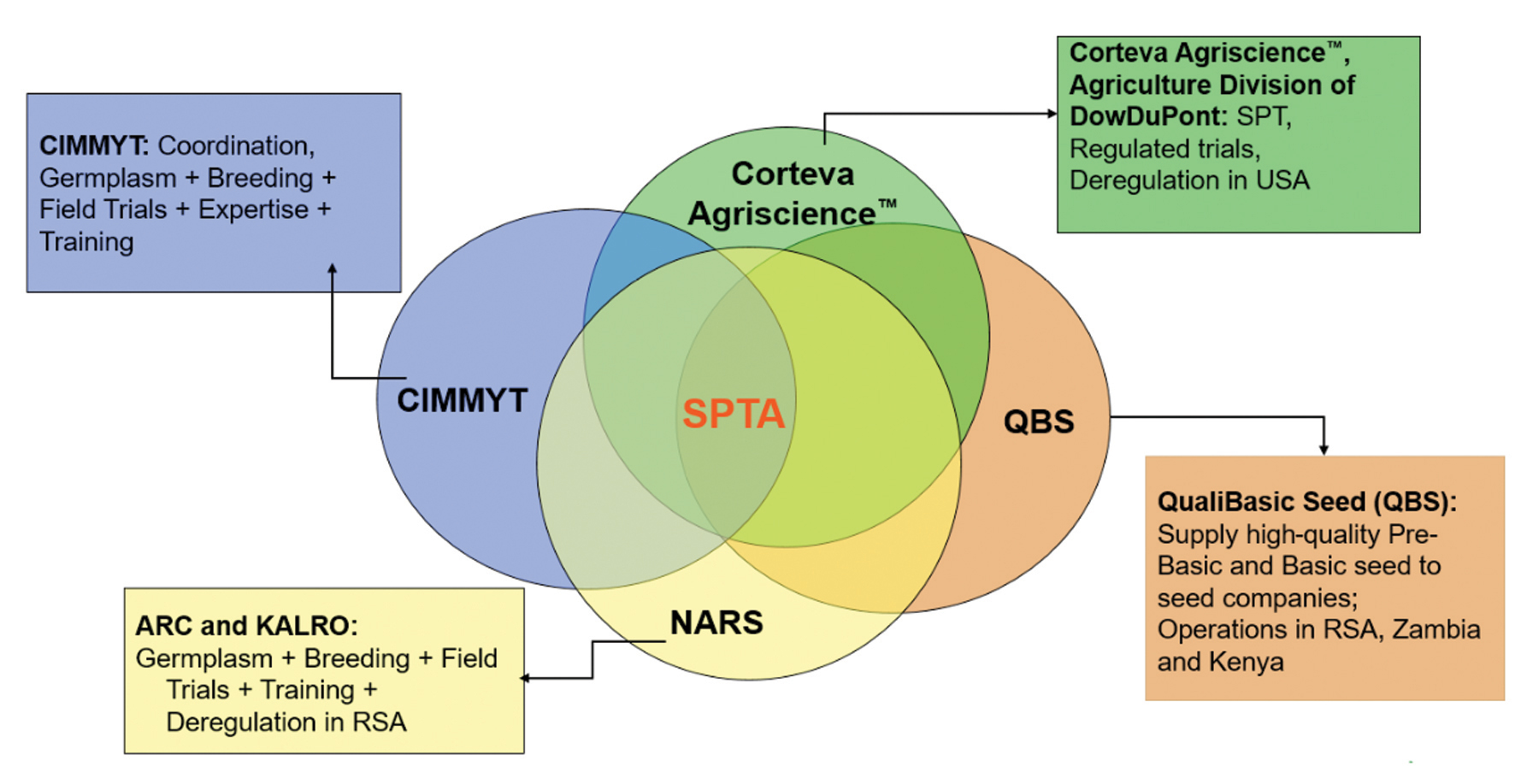
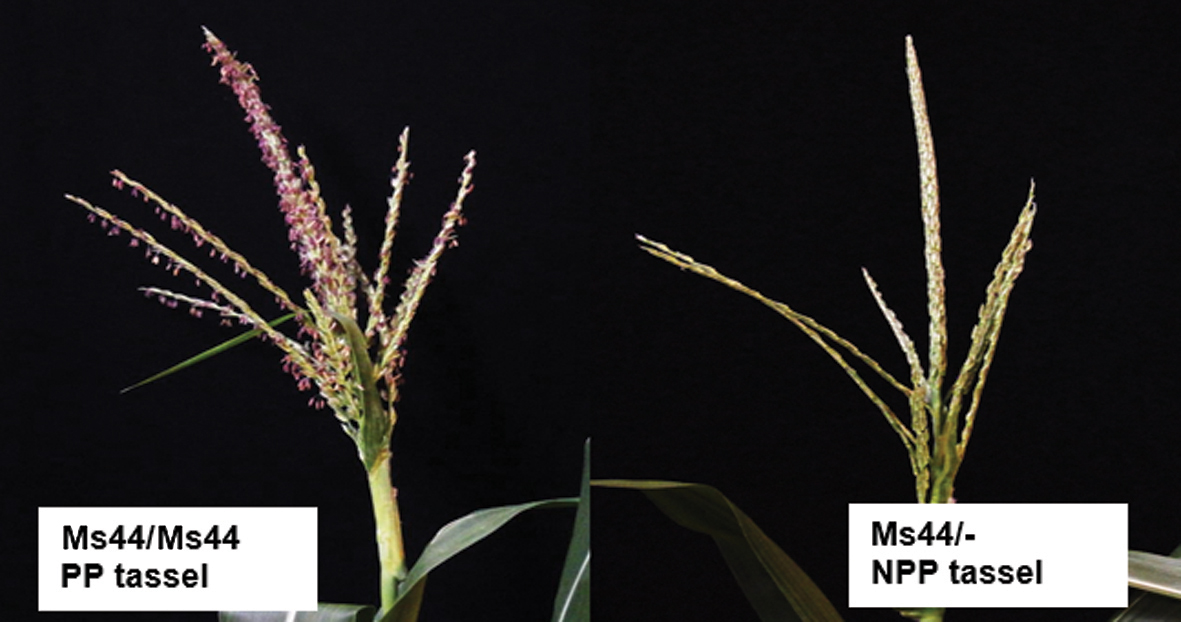
Who will benefit from SPTA?
The SPTA is a hybrid seed production technology that will benefit both small and medium-scale seed producers, as well as farmers.
Benefits to small and medium-size seed companies
One of the benefits for small and medium-size seed companies is that the SPT will allow seed producers to be innovative in hybrid seed production and distribution. The small and medium-size seed companies will benefit through reduced seed production costs and ease of producing high-quality hybrid maize seed. Hybrid maize is a product created by cross-pollinating different maize parental lines.
During hybrid seed production, detasseling or the removal of tassel from the female plants (manual creation of male sterility) is a standard practice employed to control pollination and prevent contamination. The procedure requires a number of precautions to be adopted and must also meet the required standard. For instance, delayed or incomplete detasseling might result in contamination, reduced seed purity and seed rejection for certification. Detasseling is also an expensive labour-intensive practice that escalates seed production costs and seed prices for farmers. The tall plant height of some single-cross female parents also poses a challenge when having to detassel them.
SPT eliminates the requirement for detasseling the female parents during the hybrid seed production process. This technology simplifies and increases the effectiveness of the hybrid seed production process by making cross-pollination between the female and male parents more reliable, enabling efficient and cost-effective supply of affordable novel hybrid seed with excellent purity to smallholder farmers.
Substantially, when seed companies detassel during hybrid seed production, an estimated average of three leaves are removed together with a tassel (Figure 3, unpublished data), hindering the ability of the female parent to express its maximum potential yield. High yield of SPT-produced hybrids is obtained from the fact that the non-pollen-producing plants do not invest in pollen production and also from zero yield reduction associated with leaf losses during detasseling.
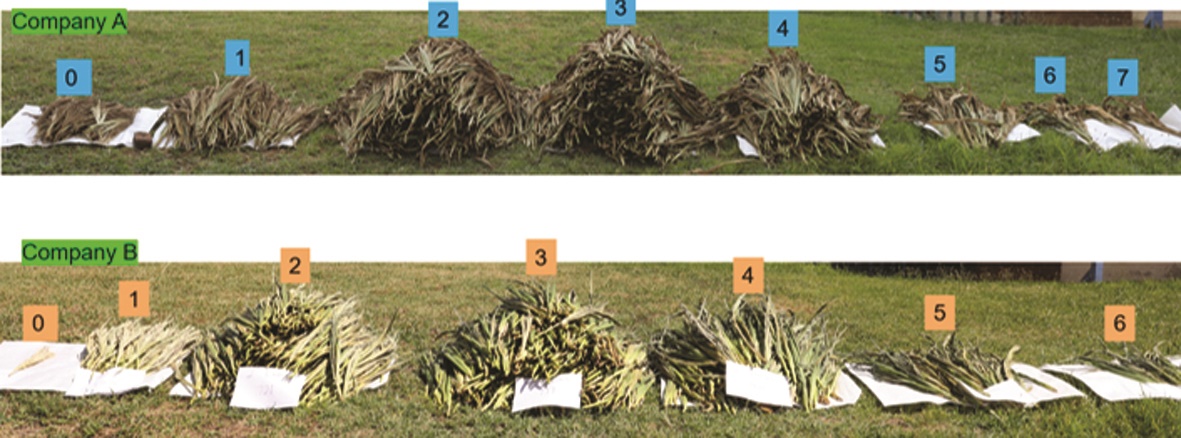
Benefits to smallholder farmers
Small-scale farmers benefit from the technology through access to improved maize hybrids with high yield and better-quality seed. The SPT seeds produce maize with smallholder farmers’ desirable qualities and yield. Collinson et al. (2023) evaluated multiple hybrid pairs (50% non-pollen-producing/FNP and pollen-producing/PP versions) in on-station and on-farm field trials across Kenya, Zimbabwe and South Africa. The FNP hybrids showed a 202 kg/ha yield increase over the PP hybrids. The FNP yield advantage was observed in many different environments, and hybrids of different genetic backgrounds. The FNP hybrids can provide a 10% to 20% yield increase under different stress levels in smallholder farmers’ fields. Farmers in Kenya also indicated a preference for FNP hybrids due to the larger cob size.
Hybrids carrying the Ms44 gene have also demonstrated high yield advantage in low nitrogen soils (4% to 8,5%) and drought stress (1,7%) (Fox et al., 2017).
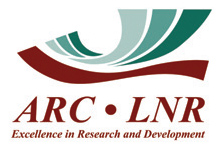 Conclusion
Conclusion
This technology has proven to be beneficial not only to seed companies, but also to the smallholder farmers. A larger part of the cost of inputs are attributed to seeds and fertilisers. If the seeds are of good quality and relatively cheap, then there is potential for the farmers to break even after a good harvest.
Contact the authors for references.




